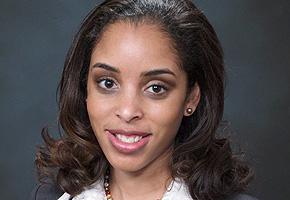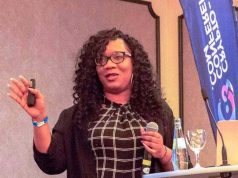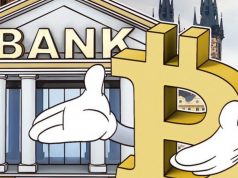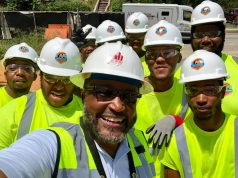Just reading her resume might make you tired. Although a young entrepreneur, Kellee James has accomplished much in her industry—and she’s just getting started. James is the founder and CEO of Mercaris, a market data service and trading platform for organic and certified agricultural commodities.
Before launching Mercaris, James spent five years at the start-up company Chicago Climate Exchange, the first electronic trading platform and registry for spot, futures and options on carbon, sulfur, clean energy and other environmental derivatives.
Even President Barack Obama has recognized James’ expertise. He selected her as a White House Fellow.
Here is how James explains Mercaris, whose name is from the Latin word for markets. “Mercaris is a market information/data service and an online trading platform for organic and non-GMO agricultural commodities,” she says. “Just like Bloomberg or Thomson Reuters lets you track asset classes like stocks and bonds, Mercaris lets everyone from farmers, to grain elevators, to food processors to retailers track supply, demand, and price information on things like organic corn, coffee, non-GMO soybeans, etc.” She says this is a much more convenient business tool for this market. “Our online trading platform lets buyers and sellers of those commodities conduct business via an electronic trading platform,” James explains.
James, who received her MBA and MA in international development from American University in Washington, DC and completed a BA in Spanish from the University of Kentucky, has worked with coffee farmers and commodity banks in Latin America on risk management and income diversification strategies.
James has spent years honing her talent by working in the industry before launching her own company. “I’ve worked the intersection of the environment and market-based solutions for many years,” she reveals. “I spent five years at a start-up trading platform called Chicago Climate Exchange that was the first of its kind of exchange for carbon credits and other environmental derivatives.”
For the White House, she got to expand her reach. “I advised members of the Obama administration on markets for fisheries, catch limits (often called ‘catch shares’) and water quality markets,” she says.
Today with Mercaris, James has carved out a unique niche. “Mercaris is another application of economics principles to environmental outcomes. It’s a way to measure and communicate price differences between conventional agriculture and organic agriculture,” James points out. “That difference in price is how we, as a society, value things like soil health, reduced chemical pesticide, fertilizer use and better water quality. It isn’t a typical career path, but it’s challenging and satisfying because of that. I enjoy making my own way.”
And on that path, James has found few women and even fewer African-American women. “It’s a field where there are few women of color and so that’s still a big challenge,” she shares. “Now that I’ve founded a new company, it brings home that reality that not many women or minorities, comparatively speaking, have entered this field. It requires an incredible amount confidence, connections, and results, to get people to believe in you: whether its investors, advisers, employees or customers.”
To other women entering a male-dominated field, James has some advice. “Commit 100%, learn enough that you know your field well and understand the startup world well, but not so much that you let conventional wisdom tell you whether and how you can succeed,” she offers. “Maintaining that independence and creativity is key. It’s a cliche to say ‘find a mentor’ but it really does help. In my case, I’ve found several: I go to different people for different types of advice and perspective.”
James also suggests stepping out of your comfort zone. “Seeking opportunities to challenge yourself and grow is critical,” she adds. “When I accepted the White House Fellowship, it did take me off my career path in a way–going from private sector to public sector, but the challenge and opportunity was irresistible. And I was still working on the same issues, but from a different perspective.”
Besides the White House Fellowship, James was also a non-resident senior fellow in the Joint Center’s Energy and Environment Program. “For me, it was a chance to get involved on an issue I care about, and one which is impacting and will impact communities of color in a variety of different ways that policy makers are not necessarily thinking about,” she says.
With Mercaris, James feels she has not only become a success but is making a difference. “I feel like I’m on the path to success, as measured by having real and positive impacts on a sector,” she says. “There’s always more work to do when it comes to the challenges of a healthy environment though. And I hope I can have a positive impact on others who are considering work at the crossroads where finance and the environment meet.”
Home North America Kellee James Carves Out a Niche in Organic and Certified Agricultural Commodities










